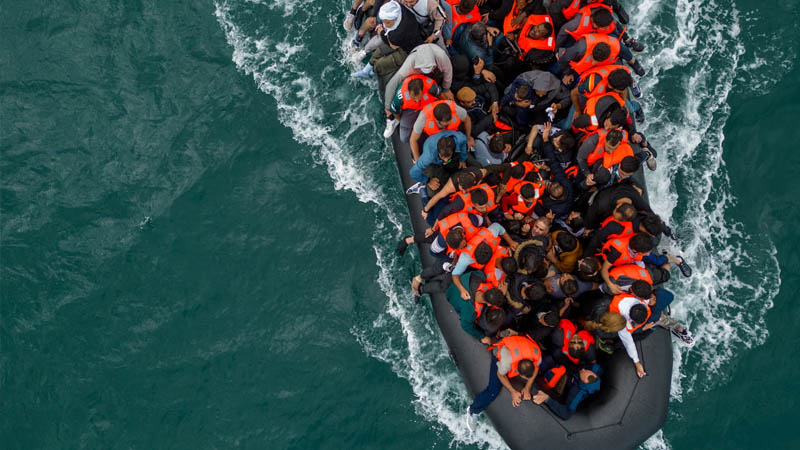
Government’s Crackdown on Small Boat Refugees Blown Apart by Surprise Legal Challenge
Share0A controversial new rule that makes it nearly impossible for refugees who arrived in the UK by small boat or other “irregular” means to ever become British citizens is now facing a serious legal challenge, The Independent reports.
The rule, introduced in February, basically says that if someone entered the UK illegally – like crossing the Channel on a dinghy or hiding in a lorry – they’ll “normally” be denied citizenship, even if they’ve since been granted indefinite leave to remain. And it doesn’t matter how long ago it happened, reported the Independent.
That hasn’t sat well with many, and now three refugees who’ve already settled in the UK are taking the government to court. Their legal team, from Duncan Lewis Solicitors, argues that the new approach discriminates against refugees and goes against the Equality Act 2010.
Charities and campaigners are seriously worried. They say this could affect tens of thousands of people, including survivors of trafficking and sexual violence. Some warn it could be devastating for those who have already suffered deeply, such as women who fled after being raped, and survivors of modern slavery who were forced to cross borders under duress.
The Home Office, for its part, is sticking to its guns. It says the rule makes it clear that arriving illegally, like on a small boat, will be a major red flag in any citizenship application. It’s a tough message that’s clearly aimed at deterring Channel crossings.
Previously, even if someone came via an irregular route, they still had a chance to apply for citizenship after ten years. But now, it looks like that door has been slammed shut for many. The Refugee Council reckons over 70,000 people could be locked out of ever getting a British passport.
Adding more fuel to the fire, the Conservatives have also floated a plan to deport anyone who arrives illegally – automatically – and even strip permanent residency from migrants who claim benefits or drop below an income threshold.
Maya Esslemont from After Exploitation slammed the policy, saying it punishes trafficking victims who were forced to enter illegally. “Survivors deserve a fair hearing, not blanket rejection,” she said.
Emily Burnham from Women Against Rape highlighted the harsh impact on women fleeing violence, warning the policy risks creating a two-tier system of rights.
And solicitor Jeremy Bloom didn’t hold back either, calling the rules “misguided” and “unlawful.” He said people who’ve already proven their case and rebuilt their lives here are now being blindsided by a rule based purely on how they entered the country.
The legal fight is on, and many are watching closely to see if the courts will put a stop to what critics are calling a deeply unfair move.
Don’t Miss These:
- David Harbour Spotted With Mystery Woman in NYC on Valentine’s Day
- Rihanna’s coat slips at A$AP Rocky’s AWGE fashion show and cameras catch the moment
- ICE arrests left cars abandoned on streets and this Tow Truck Driver started bringing them Home for Free
- Epstein Files expose Andrew’s China trip and a mystery dinner guest
- Harry Styles admits he felt “very alone” after One Direction and didn’t even know what to do with his hands on stage




